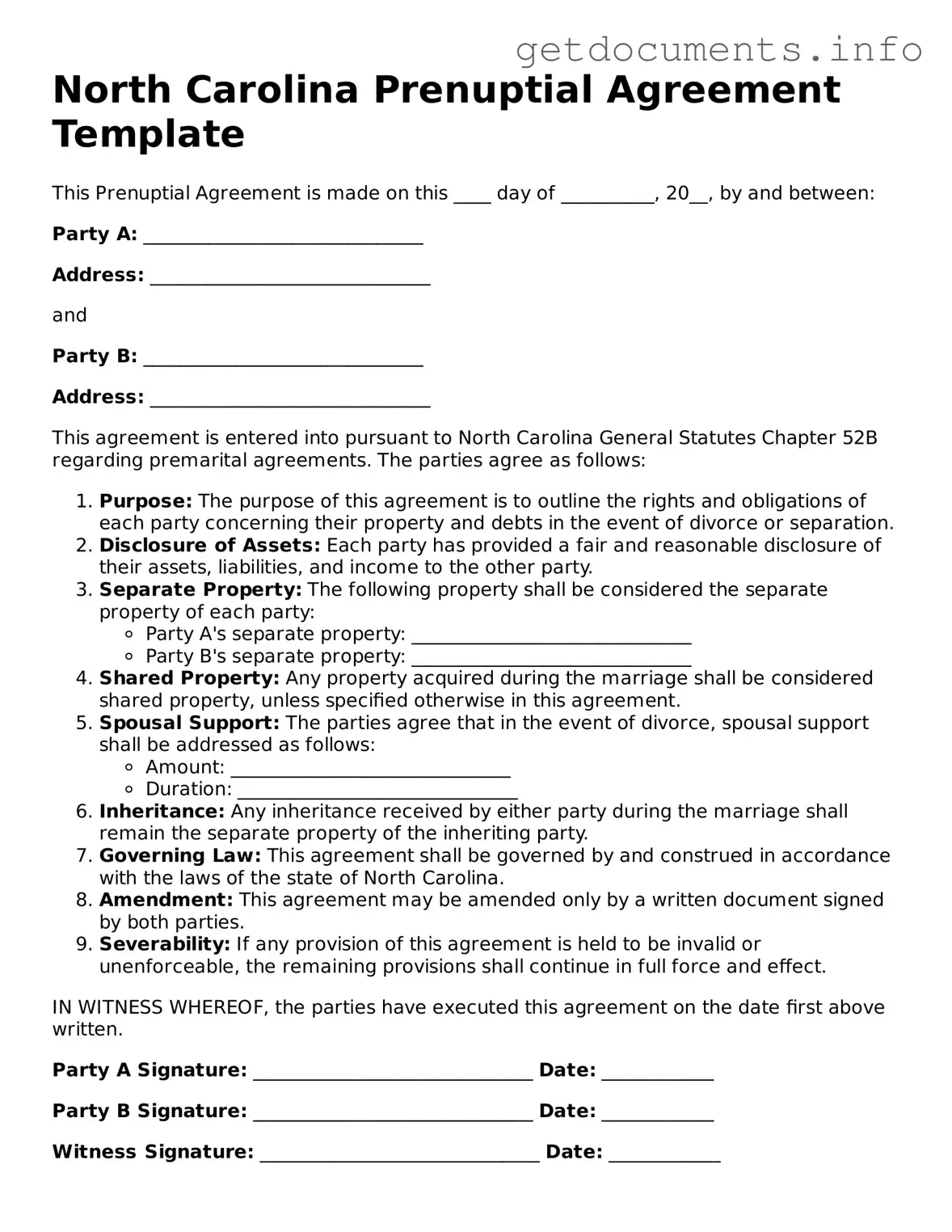Free Prenuptial Agreement Template for North Carolina
A Prenuptial Agreement in North Carolina is a legal document that outlines the financial and personal arrangements between two individuals before they enter into marriage. This agreement helps to clarify each party's rights and responsibilities, providing peace of mind and protection for both partners. If you're considering a prenuptial agreement, take the first step by filling out the form below.
Access Prenuptial Agreement Editor

Free Prenuptial Agreement Template for North Carolina
Access Prenuptial Agreement Editor
Got places to be? Complete the form fast
Fill out Prenuptial Agreement online and avoid printing or scanning.
Access Prenuptial Agreement Editor
or
⇩ PDF File
